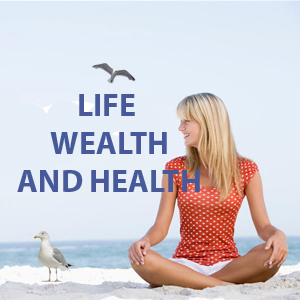Are you thriving or surviving? Are you living a life you love or do you feel exhausted most of the time, accompanied with an overwhelming sense that there’s just not enough time in the day?
Financial gurus tell us to, “pay yourself first” and to immediately place 10% of our income into an account for our future. They say when we invest money into a long-term plan and consistently add to it, the future dividends grow at an exponential rate.
This same premise holds true with regards to our health and well-being. When we invest small increments of time and energy over a long period of time into self-care, the returns are also exponential for health and vitality.
When investing in your health, it helps to know exactly what you need to do. The following is a list of healthy living practices that will help you increase your energy, health and happiness:
1. Nutrition. Food affects us on so many levels: body composition, mood, energy and immune response. On the cellular level, it’s true “you are what you eat”. The foods and their nutrients are the raw materials to repair and rebuild our cells. The human body reproduces over 300 billion new cells on a daily basis. That’s a lot of opportunity to replace old weak cells with stronger, more resilient ones! With the correct type and quality of nutrients, you can build a stronger and healthier body in no time.
2. Exercise. The body is made to move. In fact, without physical activity, some physiological processes fail to work at all, and others work less than optimally. For instance, the pumping action of the lymphatic system, which facilitates cellular nutrition and waste removal, is improved with physical movement.
There are 4 types of exercise that add a dimension to health and fitness:
a. Aerobic activity. This is any activity in which you sustain an elevated heart-rate and respiration for an extended period of time, typically over 20 minutes. The benefits of a cardiovascular workout include healthier heart and lungs, improved circulation, digestion, mood, energy, increased immune response and caloric burn.
b. Resistance training. Also known as strength or weight-training, many women now understand that lifting weights affects them differently than it does men. For women, their bodies will build more muscle but, unless they decide on a professional career in body building, will never achieve the mass men do. Even small changes in body composition will enhance daily metabolism, burning calories at a faster rate. `Pumping iron’ increases range of motion, muscle tone, maintains joint stability and increases muscle strength, bones, tendons and ligaments.
c. Flexibility or stretching. As one of the most under-rated forms of exercise, stretching is your best friend, especially as we age. The benefits of increasing our flexibility include alleviating stress and muscle tension; facilitates muscle recovery as well as being a conducive cool-down that maintains and increases range of motion and mobility; improves posture and reduces pain; and enhances circulation and oxygen delivery to muscles.
d. Mind-Body. Recently, this type of activity has been achieving popularity in the West. Mind-body exercises are those which require us to place our awareness in our body, posture, breathing and movements. Some examples include active forms like Tai-chi, certain types of yoga and Pilates; while restorative forms include yoga and meditation. When practicing mind-body exercises, expect to experience stress-reduction, improved circulation and energy flow, increased mindfulness and improvement in the benefits and performance in the other forms of exercise listed above.
3. Stress-Reduction Techniques. In today’s world, it is nearly impossible to avoid all stress. Actually, some levels of stress are beneficial! However, if stress is not managed properly, it can accumulate in our body and affect us on a cellular level. Eventually, if the stress is not released, it manifests in the form of physical ailments.
Besides nutrition and exercise, here are several suggestions to release your stress:
a. Eliminate unnecessary tasks, responsibilities and obligations. Learn to say no and know your limits. Much of what we do on a daily basis is unimportant to us and others.
b. Journaling. A great way to process feelings is through writing. Many people find it relieving to get their thoughts and feelings on paper and out of their heads and hearts.
c. Money-management. Financial stress is typically the number one source of tension for most of us. Taking control of our finances and tying up loose ends in money matters will help free up a lot of wasted energy.
Investing in your health is a life-long practice. When you first embark on this journey, it may be a little rough. But when you start small and focus more on consistency, these healthy living practices outlined above become second nature.
If you’d like to make it easier for yourself, enlist the assistance of a qualified professional health practitioner to help you along the way. One way to do this is to join group events, like the health and fitness retreat I will be attending in April, 2010. “Retreat to Healthy Living in Barbados” is a week-long event for women looking to develop and enhance healthy living practices.
Dr. Stacy Irvine, D.C. – Dr. Stacy Irvine is a founder and co-owner of Totum Life Science, a boutique fitness and health care center in Toronto. Through her work as …
